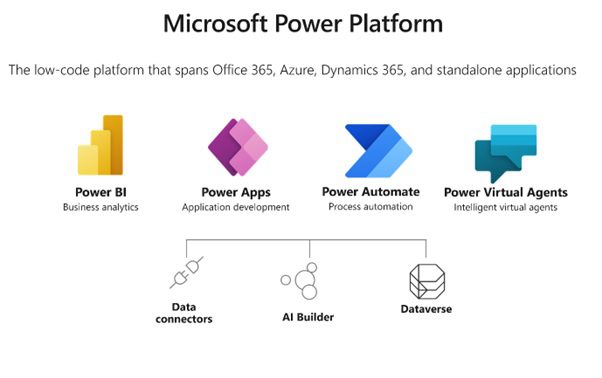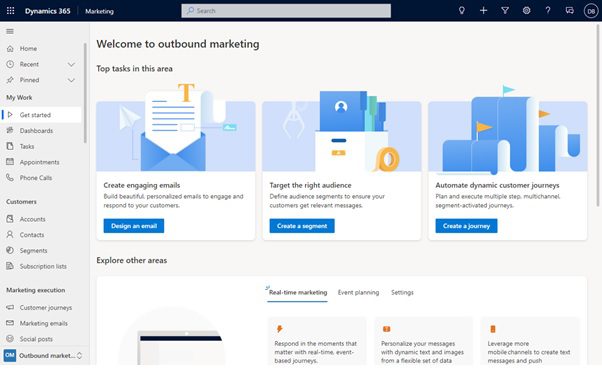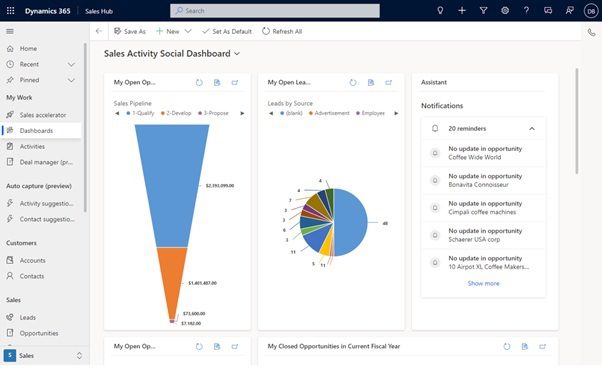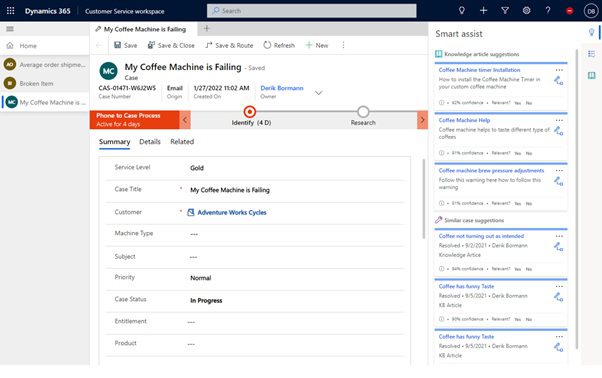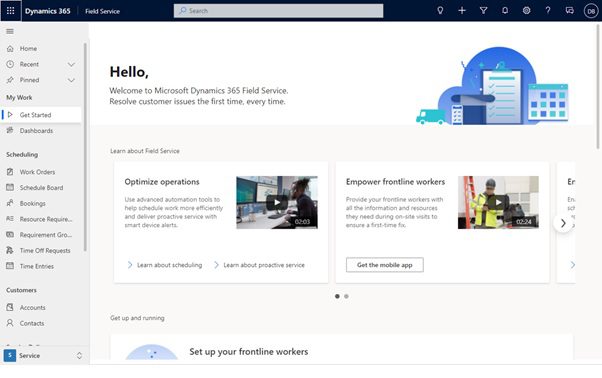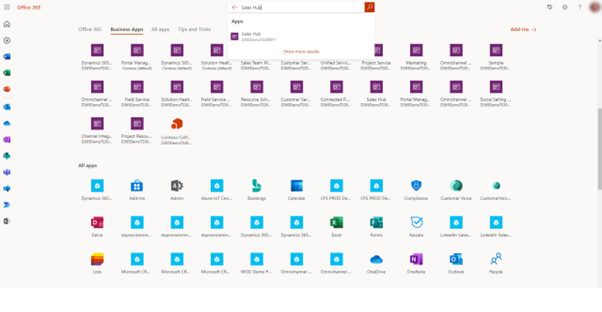Why Choose Dynamics 365 CRM Customer Engagement

Microsoft Dynamics 365 CRM Customer Engagement
Why Choose Dynamics 365 CRM Customer Engagement – D365’s customer engagement applications empower organisations to better engage, manage, and serve their customer relationships. They guide sellers through their daily selling routines and provide tools that help in servicing customers and managing projects.
Dynamics 365 customer engagement applications help ensure your employees always have the right information they need and at the right time across Sales, Marketing, Customer Service, Field Service, Project Operations and more.
What is Customer Relationship Management?
A customer is an individual or company that receives, consumes, or buys a product or service. The primary goal of a commercial enterprise is to attract customers and maintain a strong customer relationship with them over time, by ensuring they want to continue to do business with your organisation.
Organisations accomplish this through customer engagement. Customer engagement represents the emotional connection between a customer and a brand. How an organisation engages their customers directly impacts their relationship with them. Highly engaged customers buy more and demonstrate more loyalty.
Many organisations use customer engagement software to assist them as they engage with their customers. These applications help organisations fundamentally reimagine how they engage customers. They help organisations create personalised marketing, sales, and service experiences using data and intelligence to improve every interaction.
Customer engagement apps for Microsoft Dynamics 365 CRM, built on Microsoft Power Platform, help organisations manage customer relationships. Organisations can use these applications individually or together to create powerful end-to-end relationships with their customers.
While each application provides a specific solution, they share common elements that are the same regardless of the application you’re using.
What are D365 Customer Engagement Apps Built on?
Before we get into the different Dynamics 365 customer engagement applications and Why Choose Dynamics 365 CRM Customer Engagement, let’s examine what they’re built on.
Microsoft Dynamics 365’s customer engagement applications are built on Microsoft Power Platform. The Microsoft Power Platform is Microsoft’s low-code application development platform that not only spans Dynamics 365, but also Office 365, Azure, and standalone applications. It combines the power of PowerApps, Power BI, and Power Automate and Power Virtual Agents into one business application platform that provides quick and easy app building and data insights.
One of the key elements to building business solutions on this platform is Microsoft Dataverse. Dataverse allows you to securely store and manage data used by your business applications. For example, you might store all your customer data in Dataverse. Dataverse data is stored in tables. A table is a set of rows and columns. Each column in a table stores a specific type of data such as names, locations, ages, dates, salaries, and so on.
Dataverse includes a base set of standard tables that cover typical business scenarios such as accounts, contacts, and activities. The advantage to Dataverse is that organizations can also create custom tables specific to their needs and populate them with data. Examples would include:
- A real estate company might create tables to store the properties they sell, represent open houses, or store showings.
- A financial company might create tables to represent loan applications or bank accounts.
- An auto repair company might create tables to represent the parts they sell or the services they provide.
- Application makers can use tools like Power Apps to build rich applications that use this data.
Using Dataverse provides these benefits:
- Easy to manage: Both the metadata and data are stored in the cloud.
- Easy to secure: Data is securely stored so users can only access what they need to. Role-based security allows you to control access to tables for different users within your organization.
- Rich metadata: Data types and relationships are used directly within Power Apps.
- Logic and validation: Define calculated columns, business rules, workflows, and business process flows to ensure data quality and drive business processes.
- Productivity tools: Tables are available within the add-ins for Microsoft Excel to increase productivity and ensure data accessibility.
The Dynamics 365 customer engagement applications such as Dynamics 365 Sales, Dynamics 365 Customer Service, or Dynamics 365 Marketing use Dataverse to store and secure their data. This enables you to build apps by using Power Apps and Dataverse directly with your core business data, which is already used within Dynamics 365, without the need for integration.
How Can Dynamics 365 CRM Customer Engagement Apps Benefit your Business?
Exploring Dynamics 365 Customer Engagement Apps:
Dynamics 365 CRM applications help organisations fundamentally reimagine how they engage with customers. Organisations can create personalized marketing, sales, and service experiences using data and intelligence to improve every interaction.
Below is an outline of some of the Dynamics 365 CRM applications and the many benefits they will bring to your business .
Microsoft Dynamics 365 Marketing:
Dynamics 365 Marketing is a marketing automation application that helps turn prospects into business relationships. Whether it’s creating rich and dynamic marketing content or helping you understand your leads better, Dynamics 365 Marketing provides you with everything that it needs to take control of your marketing efforts. Powered by Microsoft Power Platform, Dynamics 365 Marketing provides customers a set of capabilities that enable marketers to analyse, target, and engage with their customers.
Microsoft Dynamics 365 Sales:
Dynamics 365 Sales empowers sellers to build strong customer relationships and close deals faster. Digital selling tools help sellers better understand which customers and sales opportunities they should be focusing on. It provides every seller in your organisation with the capabilities to analyse, act, and automate digital selling across your organisation to transform their approach to selling from the ground up.
Microsoft Dynamics 365 Customer Service:
Dynamics 365 Customer Service empowers your support staff to provide enhanced assistance to your customers. It provides you with everything needed to manage the complete end to end lifecycle of support requests being reported by customers. From the initial case creation and management, to developing knowledge management solutions, Dynamics 365 Customer Service helps organisations ensure that customer issues are being handled quickly and effectively.
Microsoft Dynamics 365 Field Service:
Dynamics 365 Field Service provides organisations with the tools necessary to deliver onsite services to their customers and manage their mobile workforce. With tools that help create work orders, schedule and dispatch technicians, execute on work orders, asset management and servicing, inventory, and billing, Dynamics 365 Field Service helps equip technicians with what they need to increase first-time fix rates.
Microsoft Dynamics 365 Project Operations:
Microsoft Dynamics 365 Project Operations helps project-based organisations connect sales, staffing and resourcing, project management, and finance teams in a single application that accelerates project delivery, and maximizes profitability.
It provides organisations with the tools they need to control projects using either traditional waterfall or agile methodologies and manage resources with accurate information for analysis of resource allocations and utilizations. Project Operations help organizations more effectively do the following:
- Project-based selling – Organisations who sell projects can manage every aspect of the project selling process. While the sales cycle length and project costing make project-based selling different from typical product-based selling, Dynamics 365 Project Operations uses the same core sales record types used by Dynamics 365 sales to support product-based selling scenarios. This provides a common experience for organizations that might do both project-based and product-based selling.
- Project management – Project managers are equipped with the tools they need to be successful managing projects including accessible dashboards, task management, project and resource scheduling, interactive Gantt charts, and work-breakdown structures. These tools help develop accurate estimates for labour, expenses, and materials, and track planned-vs-actual consumption as their projects progress. Extensive reporting tools and built-in insights ensure that you understand how projects are trending and help to drive timely decisions for course correction.
- Project resource management – Resource managers are equipped with the tools they need to successfully manage project resources. They can easily resource bookings with their project schedule assignments. Skill and proficiency repositories make it easy to identify which resources are qualified to work on different project tasks. Extensive resource management tools help you identify how resources are being used. You can then ensure that they’re being used on the right types of projects and that they aren’t being over extended.
When used alone, each application empowers organiszations to manage the daily aspects related to that item. For example, Dynamics 365 Sales helps you take control of, manage, and automate the tasks related to your sales cycle. However, when combined with Dynamics 365 Customer Service, you now have a complete solution that ensures you’re providing high levels of service to your customers after they’re sold. Service-related events can be used to trigger sales-related events to get sellers out selling to customers.
Even though each application provides a specific type of functionality, they each share common elements to provide a unified experience whether you’re using them separately or together.
Now that we’ve introduced the different Microsoft Dynamics 365 CRM applications, let’s take a closer look at how the different applications can be accessed.
How to access the Dynamics 365 Customer Engagement Apps
There are many ways that users can access Microsoft Dynamics 365 CRM applications depending on the user needs, and the type of device that you’re working on. Some applications, such as Dynamics 365 Field Service and Dynamics 365 Sales, have dedicated apps that can be downloaded and installed on your mobile devices to provide users with targeted functionality based on that application. For example, field technicians can use the Field Service mobile application to quickly access the work orders and bookings that have been assigned to them throughout the day.
Often organisations want to provide access to Dynamics 365 data to their customers. Power Platform portals make it easy for customers and vendors to access Dynamics 365 data. One common example of this is through a customer service portal. Customers can easily access data, such as open cases, and perform self-service options, such as working with knowledge articles.
The easiest way for users to access the applications is through a web browser on the device of their choice. Users can access business applications such as Dynamics 365 CRM applications from the apps area of the Office 365 portal..
Once in the Apps area, selecting the Business Apps tab will provide quick and easy access to all your business applications from a centralized location. These include any Dynamics 365 CRM applications you have access to. Each application is displayed in the form of a tile with a description to guide users access to the application. A search control at the top of the screen allows you to quickly search for the application you want to open. Selecting the application will open it.
As you can see, the core capabilities available in Dynamics 365 CRM applications ensure that you have a consistent work experience regardless of the task you’re doing. From the sales and marketing applications that are designed to help identify prospects and turn them into long lasting customer relationships, to applications designed to help customer service, field service, project operations and more and help you to answer the question… Why Choose Dynamics 365 CRM Customer Engagement?
We help our customer get access to the best in class Customer Engagement tools with Dynamics 365 CRM applications from Simply Dynamics to enable you to fully engage your customers across all aspects of your business.
You might also be interested in checking out our latest D365 Newsletter where you can learn more about the benefits of Dynamics 365 CRM CE Apps including What’s New and Planned for Dynamics 365 and to check out our Dynamics 365 CRM Rapid Start Bundle Pricing Plans to help get you started on your Customer Journey.
Next Steps
If you would like to learn more about the benefits of Dynamics 365 CRM Customer Engagement Solutions for your business…
Simply Book Your Free Online Meeting Here or Contact Us Now
Our Dynamics 365 Specialists are here to help!
